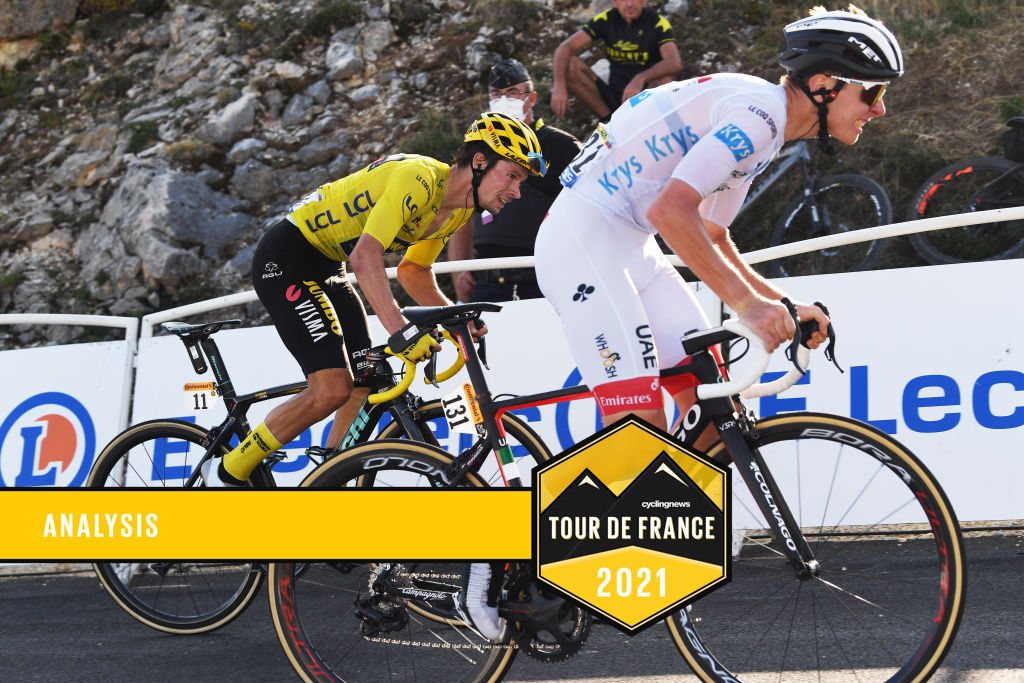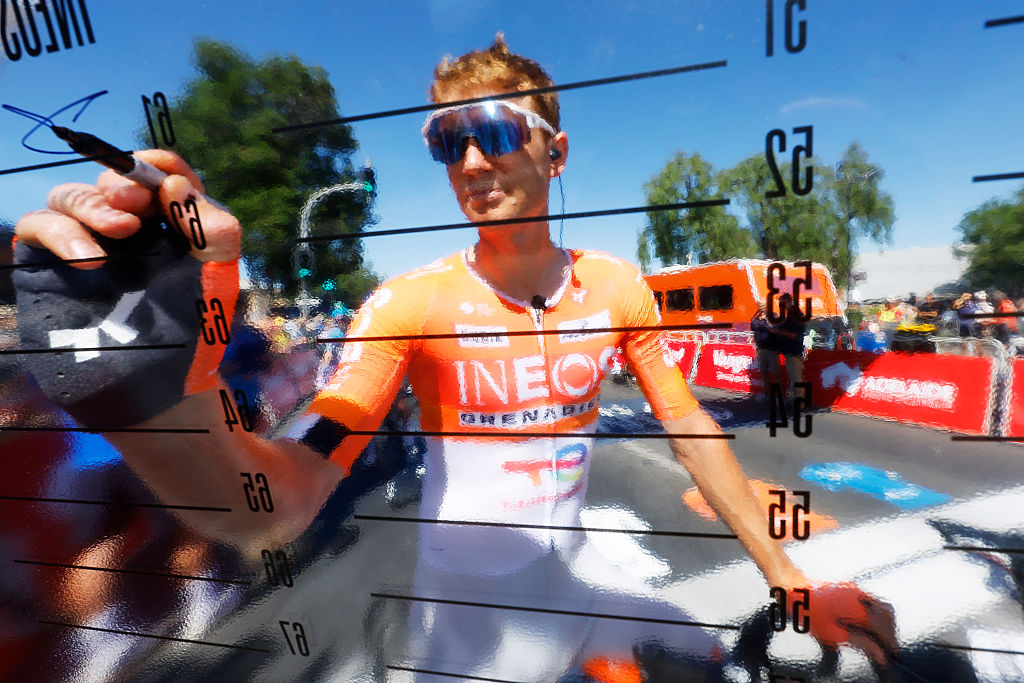Philippa York: Ineos versus Slovenia at the Tour de France
The British team are in form but haven't directly beaten Roglic or Pogacar in the past three years

The latest race content, interviews, features, reviews and expert buying guides, direct to your inbox!
You are now subscribed
Your newsletter sign-up was successful
Every year, before the first physical exchanges are fired in the battle for supremacy on the roads of France, there's the mental sparring to decipher. This has begun with Ineos Grenadiers supremo Dave Brailsford deciding that they will not have a designated team leader when the Tour de France begins in Brest on June 26.
Despite having four riders who could fulfill that role, we're being led to believe that there's no hierarchy. Maybe along with their new way of aggressive racing, the internal workings of the squad have suddenly become democratic, too, but somehow I doubt it, and I can't see anyone living in the WorldTour bubble being convinced by the announcement either.
The trouble is, when no-one wants to share the secret over who stands where in a team's pecking order, the protocol of number allocation is done alphabetically. Therefore, in theory at least, the Grenadier wearing the dossard number one will be Richard Carapaz. How convenient and inconvenient at the same time.
It's all nit-picking really, as we know the Ecuadorian is sharing the GC burden with Geraint Thomas and that Tao Geoghegan-Hart and Richie Porte will be the lieutenants de luxe when they are needed. Personally, I love to watch the body language of the GC riders during the team presentations when the question over who will ride for who comes up. It always does, probably so we can see if those concerned are vaguely comfortable with the deceit being pedalled or have realised that, although they might have convinced themselves they are on an equal footing, everyone else has decided who will really end up being the leader when the crucial moments come along.
But let’s not get ahead of ourselves. The last few psychological mind games are just one aspect to enjoy but much more important in the build-up is comparing how the big favourites have ridden against each other.
That would be the normal method of analysis, but none of that applies this season because the big hitters have avoided each other like the plague. So we'll have to look at recent past form, and there things get a bit more complicated for Ineos’ international collective versus Slovenia’s finest.
Ineos have won the last four WorldTour stages they have entered – Romandie with Thomas, the Giro with Bernal, the Dauphiné with Porte, and the Tour de Suisse with Carapaz. They are on a roll but neither Roglič nor Pogačar were in any of those races and, when you look at the history of racing against last year's Tour’s top-two, things look more intricate.
The latest race content, interviews, features, reviews and expert buying guides, direct to your inbox!
The last time Sky, or Ineos as they are now known, beat Roglič in a stage race was at the 2018 Tour de France and the last time they came up against Pogačar in a multi-day race and beat him was… never. Think about that: In the last three years they haven't been able to conquer Roglič or Pogačar
In that light, the limited exposure to the Slovenian duo, thus avoiding a possible pasting, helps feed into their leaders’ confidence going into the biggest race of the year. Not that it will have been a conscious decision; Dave Brailsford and his management team are good but they aren't psychic.
No one was to know that, when Roglič analysed the beginning of his season and what he had learned from last year's Tour defeat, he’d decide training instead of racing was his ideal preparation.
Pogačar, on the other hand, hasn’t skipped racing entirely but has skipped the recent WorldTour events. That has probably been a more tactical choice because he hasn’t wanted to show where he is form-wise. His win at the Tour of Slovenia was an indication that he's ready but it wasn't the greatest field that he and his UAE team dominated, so that's as much as you can learn.
The 2021 Tour will start with Ineos as the favourites from the three biggest GC teams, with Carapaz probably able to climb with Roglič and Pogačar but with less time trialing ability, and Geraint Thomas with less climbing form but with as much time trialing power as Roglič and slightly more than Pogačar.
In terms of the respective squad strengths, there's no contest. The British team have every base covered except for sprinting, which has been evident in how they've controlled and won those last four WorldTour stage races. However, you have to remember that Jumbo-Visma got their preparation right when the Tour was moved last year, unlike Ineos, and the teams they have put out in recent events haven't really been there for the GC but more as a building exercise. I don't doubt the Jumbo riders at the Tour will be just as strong as last year, and just as dedicated to Roglič.
In a similar vein, UAE Team Emirates have been reinforcing their squad and, with Pogačar arguably the strongest individual amongst the GC leaders, they'll need those assets in 2021. They got away with Pogačar being a relatively unknown quantity last year, even though he had won the Tour of California and placed third at the Vuelta a España.
No-one really expected him to win the race in the last time trial so UAE kept calm and raced when they needed to. They won't have that luxury this time and, more importantly, Ineos and Jumbo can't afford to let that happen again. Where they can ambush the defending champion will be the interesting part. I don't see any of the GC riders out climbing Pogačar, but those potential crosswind stages in between the Alps and Pyrenees will be more troublesome for UAE.
It's quite fitting that Alberto Contador was one of Pogačar's favourite riders because the tactics that the Spaniard used to disrupt, and ultimately win, Grand Tours could well be the very scenarios he finds himself defending against.
Ineos have the collective strength to provoke the race, Roglič has the focus to go one better than last year, and Pogačar has the ambition to become a two-time winner. It ought to be a great race.
Philippa York is a long-standing Cyclingnews contributor, providing expert racing analysis. As one of the early British racers to take the plunge and relocate to France with the famed ACBB club in the 1980's, she was the inspiration for a generation of racing cyclists – and cycling fans – from the UK.
The Glaswegian gained a contract with Peugeot in 1980, making her Tour de France debut in 1983 and taking a solo win in Bagnères-de-Luchon in the Pyrenees, the mountain range which would prove a happy hunting ground throughout her Tour career.
The following year's race would prove to be one of her finest seasons, becoming the first rider from the UK to win the polka dot jersey at the Tour, whilst also becoming Britain's highest-ever placed GC finisher with 4th spot.
She finished runner-up at the Vuelta a España in 1985 and 1986, to Pedro Delgado and Álvaro Pino respectively, and at the Giro d'Italia in 1987. Stage race victories include the Volta a Catalunya (1985), Tour of Britain (1989) and Critérium du Dauphiné Libéré (1990). York retired from professional cycling as reigning British champion following the collapse of Le Groupement in 1995.

